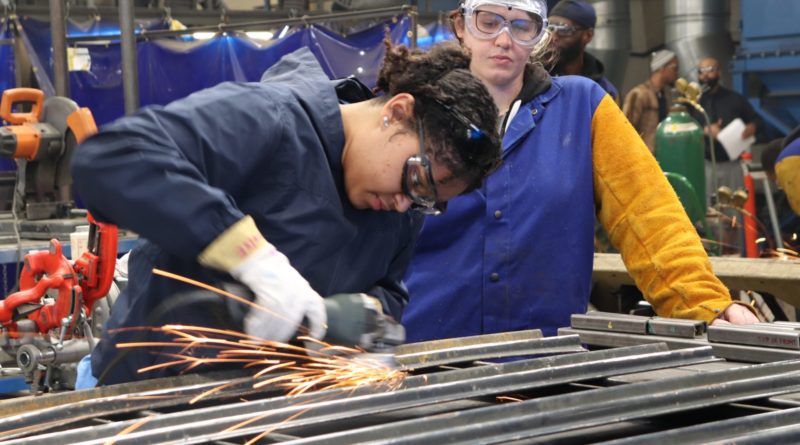Career and Technical Education Month in Michigan
With an average of more than 520,000 Michigan job openings projected annually through 2030, Gov. Gretchen Whitmer joins the Michigan Department of Labor and Economic Opportunity (LEO) and the Michigan Department of Education (MDE) in proclaiming February as Career and Technical Education (CTE) Month.
What is Career and Technical Education?
CTE offers high school and college students hands-on learning experiences that can be applied to real-world training and career pathways. Students of all ages are encouraged to explore programs across the state that prepare them for successful career entry.
“Career and Technical Education programs prepare Michiganders of all ages for high-skill, good-paying, and in-demand careers,” Governor Whitmer said. “CTE programs also support our state’s businesses by preparing the talent they need to fill jobs and grow our economy. Let’s continue creating paths for people to get the skills they need to build a bright future in Michigan.”
High schools, colleges and universities across Michigan offer CTE programs that are aligned with in-demand, high-wage careers in fields. Some include business, information technology, healthcare, hospitality and manufacturing. Most high school programs also offer early college credit opportunities to provide a seamless transition to postsecondary education.
“Those who participate in Career Technical Education programs are more engaged, earn degrees and industry-recognized credentials, and have careers that are both rewarding and self-sustaining,” said Stephanie Beckhorn, Director of LEO’s Office of Employment and Training. “That’s why we’re working hard to ensure all students have equitable access to CTE opportunities.”
How many students participate in CTE programs?
106,077 secondary students were enrolled in 2,130 CTE programs during the 2021-22 school year
The 2021-2022 follow up survey (six months after exiting high school) revealed a number of key trends:
- CTE concentrators reported a placement rate of 95.2%.
- 68.4% of CTE concentrators were continuing their education
- 56.7% were employed
- 2% were in the military
- 0.1% were participating in national, community service or the Peace Corp.
- 71% reported they were using the skills learned in their CTE programs for continuing education or in their current job.
MDE also offers Early Middle Colleges, where students can earn high school and college credit while pursuing a college program. In 2021-2022, 15,013 students were enrolled in EMCs, with 1,429 CTE Early Middle College students.
“All Michigan students should have access to a wide range of CTE programs, which help make learning relevant, help students develop career interests and skills, and help prepare students for college and the workplace,” said State Superintendent Dr. Michael Rice. “We need to expand CTE programs in areas that have limited offerings. It’s a matter of fairness, career development, and workforce development.”
Postsecondary institutions in Michigan have 370 qualifying CTE programs offering a certificate or associate degree. Additionally, there were 113,821 students enrolled in these postsecondary programs in the state during the 2021-22 school year.
Events in Michigan
A virtual event will be held on February 22 at 10 a.m. to share information about how CTE benefits employers. To learn more and to register for the free event, visit MDE’s CTE Month website.
Students, parents, educators and life-long learners interested in exploring career options, training, wages and projected openings should visit Michigan’s free online career exploration tool, Pathfinder. Additional high school CTE resources and information may be found on MDE’s website.
Also MiSchoolData.org, the State of Michigan’s official source for pre-K, K-12, postsecondary and workforce data, helps residents, educators and policymakers make informed decisions to improve student success.
CTE ties into Gov. Whitmer’s Sixty by 30 goal, which aims to increase the percentage of adults in the state with a postsecondary degree or credential by the year 2030, as well as Michigan’s Top 10 Strategic Education Plan Goals 4, 5 and 6, to expand rigorous secondary school programming, including CTE; to increase high school graduation rates; and to increase postsecondary credential attainment rates, respectively.

